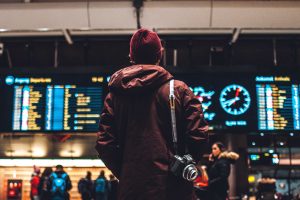Going abroad for studies or internships is a challenging and exciting experience; however, it is harder to come back home.
It’s obvious that when you are going abroad you are nervous and excited at the same time. As I have experienced, once you meet new people, explore new places, and get more responsibilities you become more independent. This independence gives you happiness and an incredible exchange or how it is worldwide well known, an unforgettable exchange experience.

What happens when you come back home and you feel like you already experienced a whole new life in the place where you studied abroad? It was your dreamed life so once you are back you start to feel sad, uncomfortable with your environment in your home country, and these could be symptoms of depression. Sometimes these symptoms can disappear in one or two months but if they don’t disappear, there can be serious consequences; you can be suffering of the post-exchange syndrome.
How do you know you are experiencing the post-exchange syndrome?
- You feel like an alien in your home country, your old school, with your old friends.
- You prefer to be chatting on Whatsapp and Facebook with the friends you left behind instead of enjoying being with your old friends.
- You feel like you are living an ordinary life.
- You want to keep traveling like you used to do it.
- You are not interested in anything new because you are only focused in desiring that things were just like before.
This is serious and if you feel like this, you should keep in mind that you are missing one part of your life that you already experienced. You need to establish new goals and adapt to your life in your home country. It can be the same school and same friends, but you can try new activities like swimming, dancing, meeting more people, etc.
If you feel like this is getting out of your hands, it is better to find some help with a professional. This syndrome is completely normal.